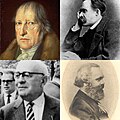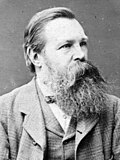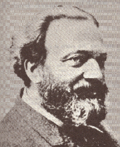German philosophy
German philosophy refers to philosophy written in German or by German philosophers. It started in the 17th century during the Age of Enlightenment, from Leibniz and Wolff through Kant, Schelling, Fichte, Hegel, Schopenhauer, Marx, Engels, and into the times of Nietzsche and Wittgenstein.
17th century
The philosophy that dominated this century was the school of German philosopher and mathematican Gottfred Leibniz, later expanded by his follower, Christian Wolff. Leibniz thought that knowledge comes from reason alone.
18th century
On the wake of the Enlightenment, a new philosophy called "critical philosophy" developed in Germany. It combined the ideals of philosophers Jean-Jacques Rousseau (1712-1778) of France and Switzerland and David Hume (1711-1776) of Scotland, and rationalism and empiricism. The founder of this school was Immanuel Kant. He published three "critiques", the most revolutionary being Critique of Pure Reason (1781), the other two being, Critique of Practical Reason and Critique of Judgement. Two followers of Kant, Schelling and Fichte, thought that Kant's system had some errors and sought to improve it. A third philosopher, Hegel (1770-1831), developed his own kind of German idealism. His books are often difficult to read, and his ideas influenced many people, including those who agreed with him, and those who did not.
German Philosophy Media
From left to right: Georg Wilhelm Friedrich Hegel, Friedrich Nietzsche, Theodor W. Adorno, Karl Marx.
Arthur Schopenhauer, a German philosopher
Friedrich Nietzsche around 1869. Photo taken at studio Gebrüder Siebe, Leipzig. Then, he must have sent it to Deussen with his letter from July 1869 ([1], KGB II.1 No 10). A copy of this photography is at Goethe und Schillerarchiv, No. GSA 101/11. Public domain due to age of photography. Scan processed by Anton (2005).









